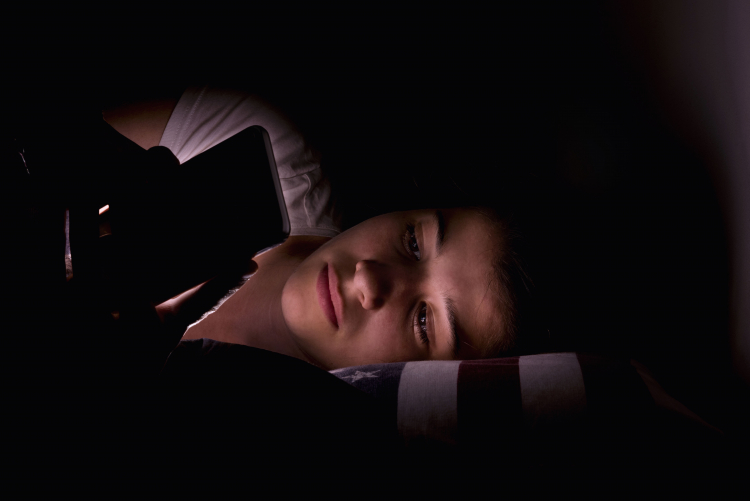Their Stolen Childhoods: Children Growing up Online

Your child is in their room, you watch them and you feel that you know what they are doing, but do you? When I was a child, my grandmother would put limits on my freedom. Allowing me to play with my cousins in front of the house where she could see us. One day I decided to take my bike a little farther down the street than was allowed and my grandmother took away the freedom to play outside without her constant watch. When your children are online, there is very little ability for you to keep an eye on them, which can lead to tragedy.
Billboard recently reported that 14 year old actress Millie Bobby Brown deleted her Twitter account. Troll accounts created memes and GIFs with the #takedownmilliebrown. Brown has been an advocate for the LGBTQ community, using her platform to gain awareness to issues in the community as well as other marginalized groups. A 14 year old girl was bullied online by people twice her age who thought sharing nasty things about a child was a joke. Luckily, Brown decided not to engage with her attackers and deleted her account. That cannot be said for many other young social media users, who deal with this type of nonsense everyday and sometimes it ends tragically.
Ann John of Swansea University Medical School conducted a study that looked at over 150,000 children in 30 countries over a 21 year period. The study focused on the impact that cyberbullying can have on children. The research found that victims of cyberbullying under the age of 25 are more than twice as likely to engage in self-harm activities as well as suicidal behavior.
Being 24, I sometimes think that I and high school kids have many things in common, but in reality, we don't. When I was in high school, drama was handled face to face. If you said something in private, you could be assured that within 24 hours the person you were talking about would hear about it. Kids nowadays can be attacked and not know who it's from; your attackers can hide behind fake screen names and voice their opinions freely while remaining anonymous. The idea that 150 people would spend time out of their day to sit on computers and talk to each other instead of physically being around one another is a type of socialization I'm not sure I will ever understand.
I have had first-hand accounts of how engulfed teenagers can be in their own world. Living with my cousin, I find myself constantly telling her to put her phone away. When we're in the car or watching a film, her hand is glued to the side of her phone. She is either sending Snapchats from her account or her friends' accounts and when she isn't on Snapchat she is watching something on Netflix. While she lives with me, she shares her time between reality and an online world.
Madison Brown, a 14 year old high school student gets ready for her first prom in high school, trying to navigate herself through normal teenage life. Image Credit: Brianna Brown“I spend 24/7 on my phone,” my cousin Madison Brown said, she's a 14 year old Freshman from Virginia. It has been estimated that high school students spend about 9 hours a day on their phones, which adds up to about 40% of their lives that are spent not living in the real world. My cousin got her first phone when she was ten years old in the fifth grade. Which means she was exposed to adulthood and adult content before she even started puberty. When I was ten, I was focused on doing well in my multiplication tables, figuring out which book I was picking out for my next book report, and deciding which format I was going to use to create invitations for my birthday party. My sense of popularity was based on the people I knew in a four-room school house. Taking a picture and posting it online or getting a certain number of likes did not solidify my self-worth.
Some psychologists have connected the rise of technology to rise of depression and suicide. A study published in 2017 surveyed high schoolers to find the correlation between their social media use and their mental state. The study found that suicide in women increased in 2010 when social media was on the rise. "Social media affects my life because it brings drama and drama brings personal issues and depression," Brown explained. She also admitted that she is rarely outside. " I barely go outside; the only time I think I go outside is on Fridays to go to the football game." A survey conducted by The Royal Society for Public Health found that young adults from the age of 14-24 who used Facebook, Twitter, Instagram, and Snapchat, had increased feelings of depression, anxiety and became more aware of their body image.
Social media is a prison that has disguised itself as a sense of freedom for young children. The cells are the applications and websites we have subscribed to. The guards are decided by who has the most followers and they take advantage of their power by influencing young children to believe that their lives would be better if they looked like them. Social media keeps your children inside on a sunny day, it prevents them from seeing their friends even when they live next door. Children need to be released from their cage of consciousness and allowed to be themselves without letting the whole world know.








